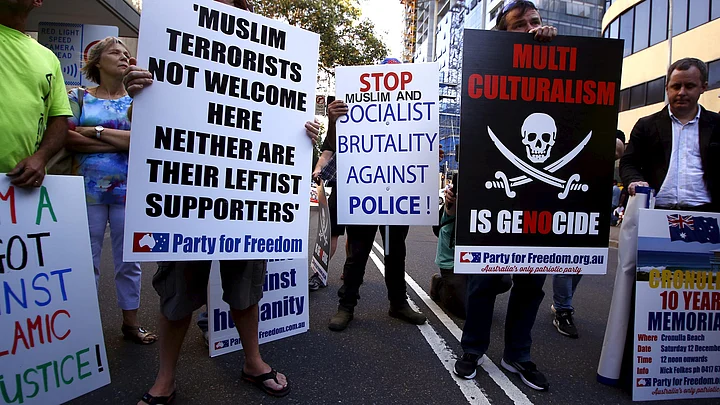In the wake of the devastating attacks on Paris, Europe and the United States are experiencing growing waves of hysteria, with fearful populations demanding closed borders and a rejection of refugees.
This is exactly what the Islamic State was hoping for.
The terrorist group thrives on exploiting the political, cultural, and socio-economic fault-lines within nations and communities. Backlash against Muslim communities and rejection of refugees foster a sense of isolation, and create a generation of people disillusioned by ‘the West’.
Although Friday’s attacks highlight the danger of returning foreign fighters, a securitised reaction will only exacerbate existing divisions between communities, which will inevitably contribute to greater radicalisation in the long run. Aside from the sheer numbers – monitoring all the suspected radicals in France would require an estimated 264,000 agents – it is much more sustainable to invest in de-radicalisation and counter-radicalisation programmes, than to thwart attacks.
In other words, rather than stopping a bomber from reaching his target, it is better to stop him from becoming a bomber at all. The key to this is maintaining a united front, and upholding humanitarian values, which in the long-term will reduce the recruiting ground for terrorists.
What Should be the Policy?
- Minimised backlash against Muslims and refugees.
- Investment in de-radicalisation initiatives rather than counter-terrorism programmes.
- Promotion of conflict resolution through collaboration and compromise, not violence.
De-radicalisation in the UK is done largely through the government’s Channel programme, which is designed to identify people at risk of being drawn into terrorism, and provide them with intense de-radicalisation sessions. This summer, an average of eight people a day were referred to the programme, demonstrating the level of concern among authorities over the rise of extremism.
In recent months, Channel has come under scrutiny because a teenager on the programme was found guilty of encouraging a terrorist attack at an Anzac Day parade in Australia, calling into question its effectiveness.
However, de-radicalisation initiatives can have an impact. A paper published in late 2013 assessed the effectiveness of a 16-hour course using films and group activities to expose participants to a broad spectrum of values. By the end of the course, participants showed sympathy for a broad range of values, and were much more likely to support conflict resolution through collaboration and compromise, rather than violence.
France has been vulnerable to attacks because although it has a tough counter-terrorism programme, it was one of the few European countries that did not implement ‘soft’ counter-radicalisation and counter-extremism programmes in the aftermath of the Madrid and London bombings in 2004 and 2005. France also has a particular problem with radicalisation in prisons.
A whole host of factors feed into this, including isolation from the outside world, a perceived sense of victimisation, and the need to belong that drives wider gang culture in prisons. Rather than clamping down on religious activities, the solution to this could be to promote religiosity, and encourage exposure to learned faith leaders, to mitigate the impact of imprisoned radicals.
Unfortunately, the almost religious adherence of the French to secularism means that in many cases the religious identity of prisoners is not even recorded. This makes it difficult to even monitor radicalisation, let alone implement effective counter-radicalisation programmes.
Europe now needs to display more long-term thinking. There must be broader recognition of the fact that counter-terrorism measures have a direct impact on the counter-extremism work that will ultimately mitigate terrorism at its root.
We must avoid knee-jerk, hard-line reactions, which will crystallise the ‘us’ vs ‘them’ narrative expounded by terrorists, and elevate the role of identity politics in already divided communities.
(The authors of this piece work for the Quilliam Foundation, the world’s first counter-extremism think tank.)
